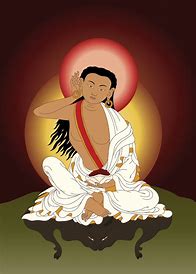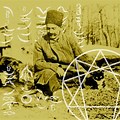Bitter row over Anglican ‘motion’ to reject gay marriage








Bitter row over Anglican ‘motion’ to reject gay marriage
Aonce-a-decade conference of the Anglican Communion has been forced into an awkward compromise on gay marriage after it descended into a bitter row over the subject within a day of opening.
After a draft communique condemning gay marriage was published earlier in the week, a backlash forced the Lambeth conference, presided over by Justin Welby, the Archbishop of Canterbury, to scramble to produce a new version in which members of the communion effectively agree to disagree.
The conference is being held for the first time in 14 years, with previous efforts postponed by the coronavirus pandemic and fears over divisions within the church.
As part of the conference, delegates will be asked to vote on the so-called Lambeth Calls, a form of conference communique informally tying the communion together in a set of stated beliefs and values.
When the draft calls were published on Monday, the section on “human dignity” included contentious language first used at the 1998 conference which stated, “It is the mind of the Anglican Communion as a whole that same-gender marriage is not permissible”.
Motion angered bishops and campaigners in church
That infuriated LGBT campaigners within the church and several bishops condemned the wording, including the Bishop of Manchester and the Bishop of Southwark in England.
It is unclear how the wording, known as Lambeth I.10 made it into the calls. Kevin Robertson, the openly gay Bishop of York-Scarborough in Canada and a member of the working group tasked with drafting that section of the calls, said that the language was never discussed in the group.
“I never agreed to this call in its current form,” he said, adding that the claim that it was the mind of the Anglican Communion to reject same-sex marriage “is simply not true”.
After stating on Monday evening that the calls would be amended, the conference published a new version late Tuesday afternoon.
Justin Welby ‘caught out by manoeuverings behind the scenes’
The new language reads: “Many Provinces continue to affirm that same-gender marriage is not permissible… Other Provinces have blessed and welcomed same-sex union/marriage after careful theological reflection and a process of reception. As Bishops we remain committed to listening and walking together to the maximum possible degree, despite our deep disagreement on these issues.”
Sources within the church suggested to The Telegraph that Lord Welby and Tim Thornton, the chair of the conference, had been caught out by manoeuverings behind the scenes. Lambeth Palace declined to comment on the matter.
The conference organisers also responded by adding a third, no option for the final vote on the calls. Previously delegates had only been able to express full or qualified agreement.
The Anglican Communion faces significant divisions between socially liberal members, focused in the UK and wealthy, Western nations, and the more numerous social conservatives mostly from African countries but with significant backing from bishops in the United States.
Those divisions led to the decision not to hold a conference in 2018.
Reference: The telegraph: Daniel Capurro
Justin Welby forced to allow Anglican bishops to reject statement on sexuality
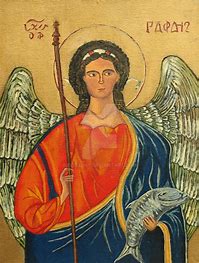









Justin Welby forced to allow Anglican bishops to reject statement on sexuality
The archbishop of Canterbury has been forced to allow Anglican bishops from all over the world the option of rejecting a statement on sexuality when they meet in Canterbury this week for the Lambeth conference.
The U-turn from Justin Welby, the leader of the global Anglican communion and the conference president, came late on Monday night, hours before 650 delegates began arriving for the 12-day meeting.
It followed an outcry from liberal Anglicans and gay rights campaigners over a declaration – known as a Lambeth Call – on human dignity that defines marriage as “between a man and a woman”. It adds that “legitimising or blessing of same-sex unions” cannot be advised, and that “it is the mind of the Anglican communion as a whole that same-gender marriage is not permissible”.
Among those protesting was the bishop of Los Angeles, John Harvey Taylor, who said the statement was “the opposite of the Christian values of healing and reconciliation. It divides, hurts, scapegoats and denies.”
Bishops of the church in Wales said the call “undermines and subverts the dignity of an integral part of our community, rather than affirming them”.
Monday evening’s statement from the Lambeth conference said: “Over recent days we have listened carefully to the responses of bishops … The drafting group for the Call on Human Dignity will be making some revisions to the Call.”
It gave no further details, but said the revised text would be released “as soon as it is available”.
The statement also announced that bishops would now have a third option in responding to the Lambeth Calls. “Bishops will now be able to clearly state their opposition to a particular Call in addition to supporting it or calling for further discussion. The third option will state: “This Call does not speak for me. I do not add my voice to this Call.”
Jayne Ozanne, a prominent campaigner for LGBT+ equality in the Church of England, welcomed the move. But she added: “I am still deeply troubled by the tone of this communique. It does not appear to address any of the concerns relating to process that so many have flagged up, nor does it recognise the breakdown in trust that there is now in relation to the [discussions on sexuality and identity] here in England.”
The issue of sexuality and same-sex marriage has caused deep divisions among Anglicans, both in the UK and globally, for decades. The Lambeth conference scheduled for 2018 was cancelled by Welby as it became apparent that differences were irreconcilable and would damage the global church.
In 2016 a meeting of Anglican primates from around the world voted to impose de facto sanctions on the US Episcopal church for approving same-sex marriages and issued a statement reaffirming “traditional doctrine” that marriage should be between a man and a woman.
Since then, the Scottish Episcopal church has decided to allow same-sex marriage and the Anglican church in Wales has voted to offer special blessings to same-sex married couples. The Church of England still bans same-sex marriages.
Conservative church leaders from Rwanda, Nigeria and Uganda are boycotting the conference in protest at the support of some Anglican churches for same-sex unions.
Welby is keen to focus this week’s Lambeth conference on issues such as the climate crisis and global inequality. In a message to bishops last week, he said: “Without ignoring those things on which we deeply disagree, I pray that we will approach this gathering with an even deeper sense of what unites us: the love of Jesus Christ and his calling to serve God’s world.”
Reference: The Guardian: Harriet Sherwood -
Royal Family: Prince Charles' holidays to a remote mountain in Greece where he lives like a monk but Camilla isn't allowed to visit
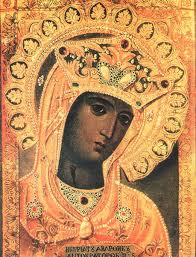










Royal Family: Prince Charles' holidays to a remote mountain in Greece where he lives like a monk but Camilla isn't allowed to visit
Being a royal comes with some perks that make life a bit more peaceful than it is for your average Joe. But sometimes when the ribbon cutting and the prying eyes all get a bit overwhelming - a quick escape to a private hideaway is just what the doctor ordered.
And for one royal family member, finding that perfect retreat means heading to a special place where even wives are banned. And for the man who is first in line to the throne - solace comes in the form of the hidden hills of Mount Athos in Greece where women and children are banned.
Prince Charles is said to have made his first visit to the “holy mountain” days after the tragic death of Princess Diana. Located on a peninsula in the northern area of Greece, this monastery on Mediterranean peaks is home to monks and no women or children are allowed.
As well as women being banned from the site, certain species of female animals are also said to not be permitted to enter according to GreekBoston.com. So when Prince Charles makes his pilgrimage to the monastic mountain, he goes it alone.
The rocky area acts as its own independent country run by the Eastern Orthodox Church. And you might find life a little different on this mount, including what time of day you call morning and night.
Byzantine time is used by those who live on the mountain which means the day begins at sunset instead of midnight. And not only is the time zone different, the dates go by the Julian calendar of the Roman Empire, which lags 13 days behind instead of the Gregorian calendar.
So when the royal pays a visit, he gets almost two weeks back of his year. According to the Guardian, the royal is believed to have made a "spiritual commitment" to Christian Orthodoxy.
But the prince seems quite dedicated to his solitude away from the hustle and bustle of royal life and is even prepared to sleep on the lumpy mattresses the monks provide. Which is a far cry from four poster beds and servants at your beck and call.
Speaking to the Guardian, royal spokeswoman Kristine Clark said: "He goes there as a private individual, not in his official capacity as the Prince of Wales. Visits are very much in his private time, so we don't issue details. What I can say is that he is interested in the architecture and spirituality of Mount Athos."
However, there’s no doubt that Mount Athos is a great detox from the everyday as you won’t find a TV or radio and you probably won’t see a car drive past. So if the royal is looking to escape from any paparazzi, then he’s definitely found the perfect hideout.
Reference: My London: Melissa Sigodo -
Pope to begin ‘penitential pilgrimage’ in Canada to apologise to Native peoples
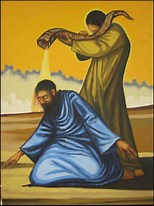








Pope to begin ‘penitential pilgrimage’ in Canada to apologise to Native peoples
The Pope’s trip to Canada to apologise for the horrors of church-run Indigenous residential schools marks a radical rethink of the Catholic Church’s missionary legacy, spurred on by the first pontiff from the Americas and the discovery of hundreds of probable graves at the school sites.
Francis has said his week-long visit, which begins on Sunday, is a “penitential pilgrimage” to beg forgiveness on Canadian soil for the “evil” done to Native peoples by Catholic missionaries.
It follows his April 1 apology in the Vatican for the generations of trauma Indigenous peoples suffered as a result of a church-enforced policy to eliminate their culture and assimilate them into Canadian, Christian society.
Francis’s tone of personal repentance has signalled a notable shift for the papacy, which has long acknowledged abuses in the residential schools and strongly asserted the rights and dignity of Indigenous peoples.
But past popes have also, in the same breath, hailed the sacrifice and holiness of the European Catholic missionaries who brought Christianity to the Americas – something Francis, too, has done but is not expected to emphasise during this trip.
Cardinal Michael Czerny, a Canadian Jesuit who is a top papal adviser at the Vatican, recalled that early on in his papacy, Francis asserted no single culture can claim a hold on Christianity, and the church cannot demand people on other continents imitate the European way of expressing the faith.
“If this conviction had been accepted by everyone involved in the centuries after the ‘discovery’ of the Americas, much suffering would have been avoided, great developments would have occurred and the Americas would be all-around better,” he said.
The trip will not be an easy one for 85-year-old Francis, or for residential school survivors and their families.
Trauma experts are being deployed at all events to provide mental health assistance for school survivors, given the likelihood of triggering situations.
Chief Desmond Bull of the Louis Bull Tribe, one of the First Nations that are part of the Maskwacis territory where Francis will deliver his first sweeping apology on Monday near the site of a former residential school, said: “It is an understatement to say there are mixed emotions.”
The Canadian government has admitted that physical and sexual abuse were rampant in the state-funded, Christian schools that operated from the 19th century to the 1970s.

Some 150,000 Indigenous children were taken from their families and forced to attend in an effort to isolate them from the influence of their homes, Native languages and cultures.
The legacy of that abuse and isolation from family has been cited by Indigenous leaders as a root cause of the epidemic rates of alcohol and drug addiction on Canadian reservations.
Grand Chief Georg Arcand Jr, of the Confederacy of Treaty Six in Maskwacis, said: “For survivors from coast to coast, this is an opportunity – the first and maybe the last – to perhaps find some closure for themselves and their families.
“This will be a difficult process, but a necessary one.”
Unlike with most papal trips, the diplomatic protocols of a state visit are taking a back seat to personal encounters with First Nations, Metis and Inuit survivors.
Francis will not formally meet with Prime Minister Justin Trudeau until midway through his visit, in Quebec City.
Francis is also ending the trip in unusual style, stopping in Iqaluit, Nunavut – the farthest north he has ever travelled – to bring his apology to the Inuit community before flying back to Rome.
As recently as 2018, Francis had refused to personally apologise for residential school abuses, even after Canada’s Truth and Reconciliation Commission in 2015 documented institutional blame and specifically recommended a papal apology to be delivered on Canadian soil.

Mr Trudeau travelled to the Vatican in 2017 to appeal to Francis to apologise, but the pontiff felt “he could not personally respond” to the call, Canadian bishops said at the time.
What changed? The first pope from the Americas, who has long defended the rights of Indigenous peoples, had already apologised in Bolivia in 2015 for colonial-era crimes against Native peoples in the region.
In 2019, Francis – an Argentine Jesuit – hosted a big Vatican conference on the Amazon highlighting that injustices Native peoples suffered during colonial times were still continuing, with their lands and resources exploited by corporate interests.
Then in 2021, the remains of around 200 children were found at the site of what was once Canada’s largest Indigenous residential school, in Kamloops, British Columbia. More probable graves followed outside other former residential schools.
Chief Bull said: “It was only when our children were beginning to be found in mass graves, garnering international attention, that light was brought to this painful period in our history.”
After the discovery, Francis finally agreed to meet with Indigenous delegations this past spring and promised to come to their lands to apologise in person.
Vatican spokesman Matteo Bruni, when asked about the evolution of the papal response, said: “Obviously there are wounds that remained open and require a response.”

One of those wounds concerns the papal influences in the so-called Doctrine of Discovery, the 19th-century international legal concept that is often understood as legitimising European colonial seizure of land and resources from Native peoples.
For decades, Indigenous peoples have demanded the Holy See formally rescind the 15th century papal bulls, or decrees, that gave European kingdoms the religious backing to claim lands their explorers “discovered” for the sake of spreading the Christian faith.
Church officials have long rejected those concepts, insisted the decrees merely sought to ensure European expansion would be peaceful, and said they had been surpassed by subsequent church teachings strongly affirming the dignity and rights of Indigenous peoples.
But the matter is still raw for Michelle Schenandoah, a member of the Oneida Nation Wolf Clan, who was the last person to address the Pope when the First Nations delegation met with him March 31.
Wearing a cradle board on her back to represent the children whose lives were lost in residential schools, she told him the Doctrine of Discovery had “led to the continual taking of our babies”.
She said: “It deprived us of our dignity, our freedom, and led to the exploitation of our Mother Earth.”
She begged Francis to “release the world from its place of enslavement” caused by the decrees.
Asked about the calls, Mr Bruni said there is an articulated “reflection” under way in the Holy See but he does not think anything will be announced during the trip.
Reference: By Nicole Winfield, Associated Press
Articles-Latest
- Koran burning conviction sparks fury as blasphemy law 'returns to UK'
- Robert Francis Prevost - Pope Leo XIV
- Pope Francis' death follows recent health challenges. Here's what we know about how he died.
- Easter April 2025 - international Celebrations
- The Rule of the twelve psalms -Worthy is the Lamb
- Religion in Africa Before Christianity and Islam
- 6 The Origin of Yahweh
- Dumo Di Milano
- What Did the Crow Tribe Believe In: Discover The Beliefs!
- 7 Reasons Historic Christianity Rejects the Book of Enoch
- 8 Breathtaking Mountain Monasteries Around the World
- Ethiopian Bible is oldest and most complete on earth
- Muhammad Muhammad was a prophet and founder of Islam.
- World Day of the Poor – SVP Christmas Campaign 2024
- Pope Francis to open 5 sacred portals on Christmas Eve — for a ritual that’s never been done before
- The 144,000 in Revelation
- Over 73 dead bodies 'used for meditation', 600 crocs in a pond, found in two Thai temples
- Occultism: Western Occult Tradition
- What is a Mudra
- Blood Sacrifices: Ancient Rituals of Life and Death
Articles-Most Read
- Home
- Let There Be Light
- Plants that feel and Speak
- The Singing Forest
- The Singing Forest-2
- Introduction
- Meditation
- Using Essential Oils for Spiritual Connection
- Heaven Scent
- Plants that Feel and Speak-2
- Purification
- Making the Spiritual Connection
- Anointing
- Essential Oils: The unseen Energies
- The Sanctity of Plants
- The Aroma Of Worship-Foreward
- The Aroma Of Worship - Introduction
- Methods Of Use
- Spiritual Blending
- Handling and Storage


